What are the 'three points to make a decision that you will not regret' that you have seen after asking 657 people about your life?

Everyone should have made some decisions and later regretted that they should have made another choice. The Conversation, an academic news site, has compiled a 'how to make decisions that you won't regret' that you've learned by asking 657 Americans between the ages of 20 and 80 about the biggest decisions they've made in their lives.
I asked hundreds of people about their biggest life decisions. Here's what I learned
Adrian Camilleri, a senior lecturer in marketing at the University of Technology Sydney, who contributed an article to The Conversation, said in his career, ' What assets should retired people invest their savings in? ' ' What kind of people companies should hire?' I have devoted a lot of time to researching decisions such as ' ?'. However, when Camilleri himself faced a big decision in his personal life, the knowledge he had cultivated in such research was completely useless. So Camilleri conducted his own research and scrutiny of previous studies to learn from the decisions of others.
◆ Survey / Research
Camilleri first set up a site called Biggest Life Decisions , soliciting answers to the question of what was the most important decision in his life to date. As a result, 'Top 10 most important decisions in life' were gathered from 657 people aged 20 to 80.
The following is the aggregated result of the questionnaire conducted by Mr. Camilleri. The vertical and horizontal axes represent importance and frequency, respectively, and the points distributed are 'career (blue)', 'education (orange)', 'family (green)', 'finance (purple)', and 'interpersonal relationships (interpersonal relationships)'. It shows a total of 58 types of decisions divided into 9 categories: 'light blue', 'place (orange)', 'self-destruction (blue-purple)', 'self-development (dark green)', and 'others (dark purple)'.
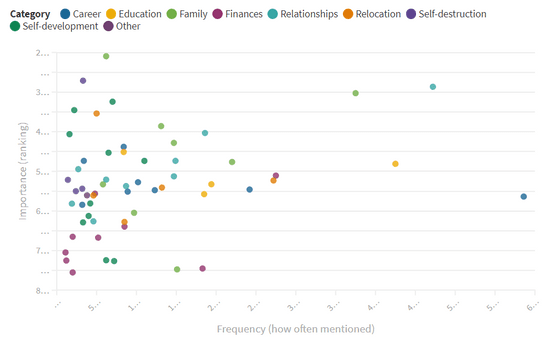
For example, 'getting a new job or job title' was most often mentioned in the answers and was of moderate importance.
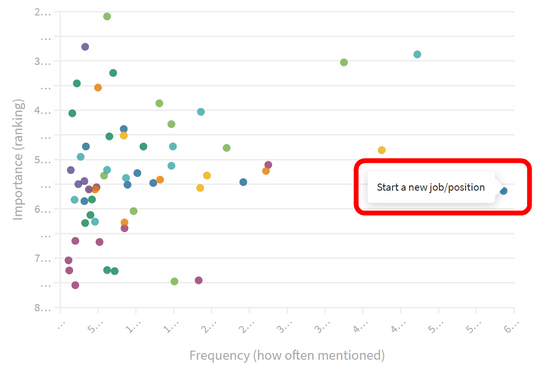
Also, the 'end of life (of the family)' decision was less frequent but most important.
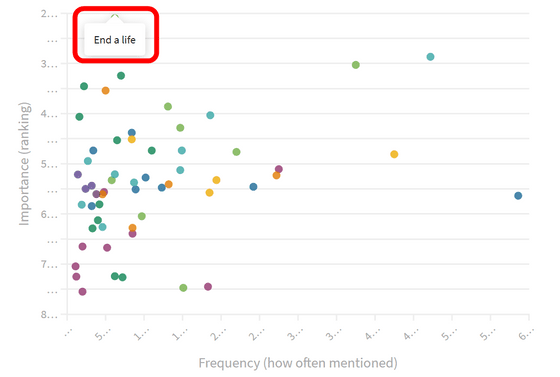
Contrary to the above, 'selling things off' was less important and less often mentioned as an important decision in life.
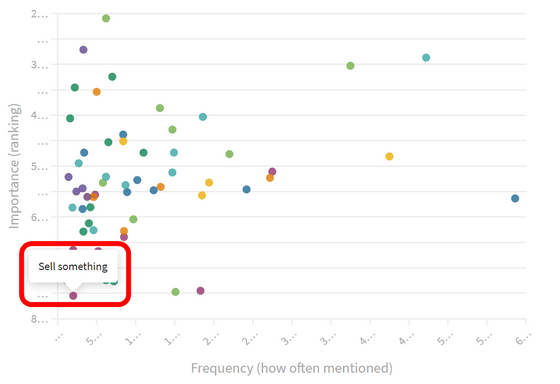
The decisions you face will vary greatly depending on your life stage. Therefore, Camilleri also created rankings by age and gender. For example, the most important decision made by people in their twenties was 'getting a new job or job title,' followed by 'getting a degree' and 'choosing a major or specialty.'
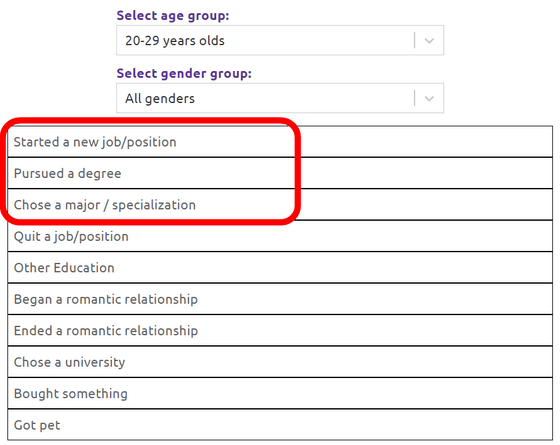
On the other hand, when this was in their 60s, 'marriage' was at the top, followed by 'getting a new job or job title' and 'having a child / adopting a child'.
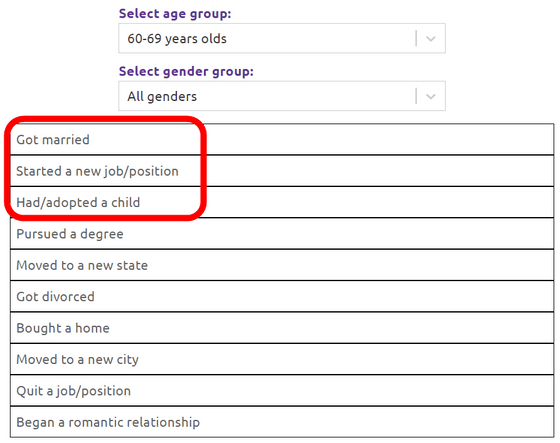
It also depends on your age. The most frequent decision for men in their thirties was still 'getting a new job or job title' ...
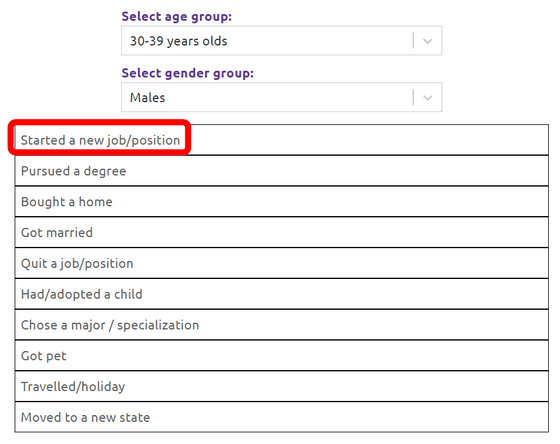
For women in their thirties, it was 'to have a child / to adopt.'
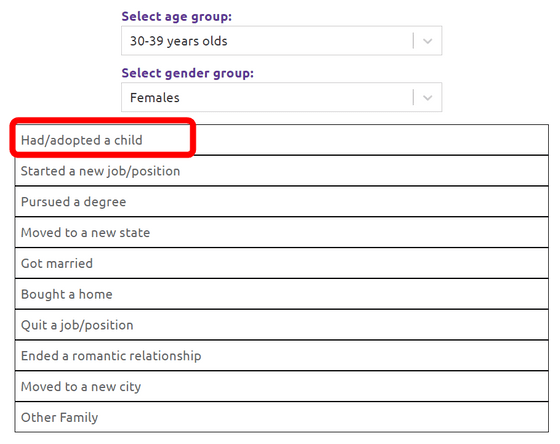
Camilleri not only conducted his own research, but also read the various books and treatises left by his predecessors. For example, Australian caregiver Bronnie Ware's book, 'Five Regrets of the Moment of Death, ' which summarizes the regrets spilled from the mouths of people on the verge of death, makes people realize at the last moment. The top five regrets are 'I wish I had lived a life that was honest with me, not the life that others expected', 'I worked too hard', 'I wish I had the courage to express my feelings honestly', and 'Contact my friends'. 'I wish I had been competing with each other.' 'I wish I had made myself happier.'
Also, in a 2011 study summarizing the results of asking 270 Americans about 'the greatest regrets of their lives,' the top six Americans regret were 'romance (19.3%)' and 'family (16.9%).' It turns out that it is related to 'education (14.0%)', 'career (13.8%)', 'finance (9.9%)' and 'child-rearing (9%)'.
◆ How to make a decision that you will not regret
From the above results, Mr. Camilleri summarized 'Points for making a decision without regrets' in the following three.
• The most important decisions in life involve family and friends, so take plenty of time to make those decisions so that extra worries such as work do not damage your relationships with your family and friends.
・ Although it is possible to apologize to others or correct the trajectory later, it is not possible to rewind the watch, so never miss a chance . In particular, scholarship and life experience never betray people.
・Do not make decisions that go against your own values or move away from your ideal self . If you make a decision that you are comfortable with, you will not regret whatever the outcome may be.
Related Posts:
in Note, Posted by log1l_ks







